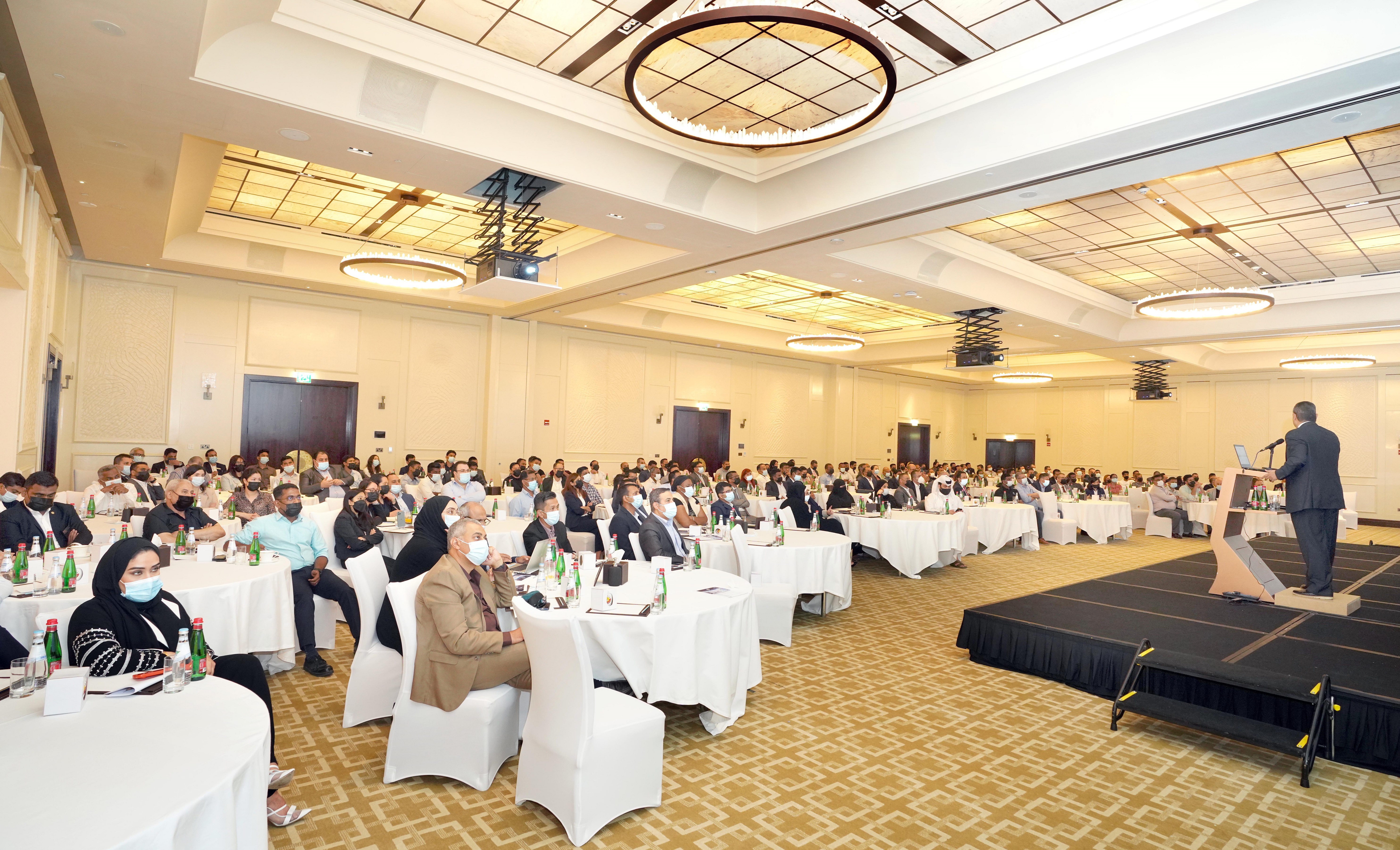The workshop represents a practical application of the efforts of (MOPH) to promote the concept of quality and health of the indoor environment and improve it in hotel facilities so that visitors to Qatar can enjoy the participation at World Cup.
During the workshop, detailed lectures were given on various topics related to environmental health, including key themes related to the health of the indoor environment in hotels.
At the beginning of the workshop, Mrs. Wassan Abdullah Al Baker, Director of the Food Safety and Environmental Health Department at (MOPH), delivered a speech stressing the importance of maintaining environmental health and improving indoor air quality in hotels and the role of (MOPH), noting that indoor air quality has become an important factor because of its direct impact on public health.
Mrs. Wassan Al Baker explained that the danger of indoor air increases especially when the indoor environment is associated with an increase in the proportion of pollutants in the indoor air, so that improving air quality has become crucial.
Mr. Tamer Abdul Aziz, Air Quality Supervisor at (MOPH), gave a presentation on the results of the evaluation carried out of the hotel facilities and presented the violations detected during the inspection and the methods followed through the evaluation program to improve the indoor environments of hotels. Dr. Mohammed Shaheed, air quality analyst at (MOPH), cited the most important pollutants that affect indoor air quality, and the ways that lead to its improvement.
Engineer Abdullah Al-Ahmadi, technician of the heating, ventilation, and air conditioning system at (MOPH), reviewed the maintenance of mechanical systems for heating, ventilation, and air conditioning in hotels. Through the presentation, the most important points related to providing guidance on these indoor systems, raising awareness and the importance of periodic maintenance of these systems, and some recommendations related to the optimal operation of these systems to improve indoor air quality were covered.
Ms. Reem Al-Enzi, health inspector at (MOPH), talked about the mechanism of cleaning and internal supervision in hotels and the operational procedures for cleaning operations, clarifying the difference between the cleaning and disinfection process, the importance of effective cleaning and disinfection, the requirements related to the cleaning and disinfection mechanism, in addition to clarifying the guidelines and safe steps to be followed during that process. At the end of the presentation, previous practices of hotels in the processes of storing chemicals and internal supervision purposes were discussed.
Mr. Mohamed Salah, health inspection technician at (MOPH), spoke about the potential health effects of pesticide use, exposure, preventive measures to be followed to properly manage and control insects, integrated control procedures and how to manage them.
Ms. Mariam Yousef Al-Shamlan, Senior Health Inspector, at (MOPH), stated the most important information of the Health and Safety Guidelines in Recreational Waters, including the health complications caused by recreational water and how to treat them through the implementation of effective management to minimize potential harm. Ms. Mariam also talked about safety and operation procedures for swimming pools and how to manage microbial and chemical risks and monitor for some indicators of aquarium water such as turbidity ratio, water antiseptic residual percentage, the result of microbial samples to make sure of the quality of the water used, in addition to the steps of maintenance and operation of pump rooms and follow other operational procedures, making sure that people are trained to provide a healthy and secure environment for users and employees.
Dr. Musa Fadl, supervisor of the waste control unit at (MOPH), detailed how to manage medical waste resulting from hotels, quarantine, and quarantine hotels to achieve separation, collection, storage, and disposal in accordance with the standards enforce locally and globally in order to achieve safety and reduce it in order not to be a source of spread of infection and disease.

























